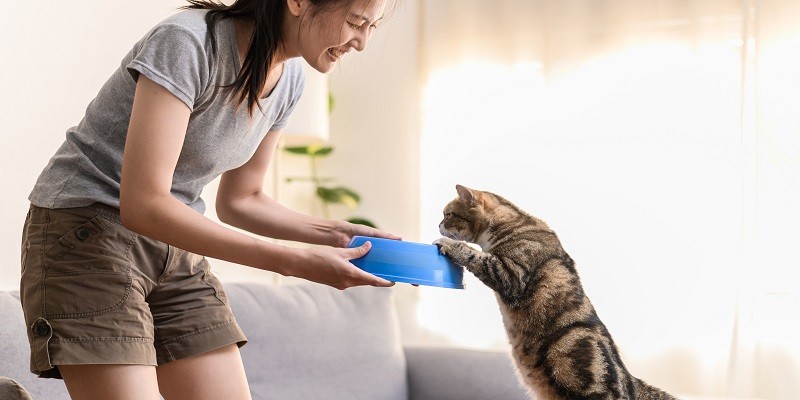Most pet parents want to offer the best food and care to their pets. A healthy diet is one of the crucial aspects of a complete pet care routine. Whether you own a dog or cat, it needs a balanced and nourishing diet for survival and good health.
Feeding a healthy diet to your pet ensures they will have the best health and live a good quality of life. So, let us explore some effective tips to feed your pets the best diet for their good health and the life they deserve.
Consult Your Vet
While pet parents love to create a diet plan for their pets, it is always better to ask a veterinarian. They have extensive knowledge of pet foods and diet plans. It is best to consult a vet whom you visited regularly with your pet. He knows the age, health, and nutritional requirements of your pet and creates a diet plan based on these factors.
High-Quality Pet Food
Selecting the right pet food plays a vital role in their overall health. Aim for reputable brands that prioritize quality ingredients and avoid artificial additives or fillers. It’s worth taking the time to carefully read the labels. Look for quality food in affordable price range with high protein, high water content and low carbs levels. Additionally, consider the specific nutritional needs of your pet, such as age-appropriate formulas or diets catering to specific health concerns.
Portion Control
Just like us, pets can face health issues if they are overfed. Avoid obesity-related problems by following the recommended portion sizes provided on the pet food packaging or consulting your vet for guidance. It’s important to take your pet’s activity level into account and adjust their portions accordingly. Regularly monitoring their weight will help you make necessary adjustments to maintain a healthy body condition.
Say No to Table Scraps
We all know how tempting it can be to share our delicious meals with our furry friends, but it’s crucial to resist the urge. Many human foods are harmful or even toxic to pets, including chocolate, onions, garlic, grapes, and raisins. To keep your pet safe and avoid potential health complications, stick to their balanced pet diet and resist giving them table scraps.
Treats
Treats are a wonderful way to reward and bond with your pet. However, it’s essential to give them in moderation. Excessive treats can contribute to weight gain and disrupt the balance of their main diet. Look for healthy, low-calorie treats made specifically for pets, or consider using small portions of their regular food as treats during training sessions. Finding the right balance will keep both you and your pet happy.
Hydration Matters
Just like us, pets need proper hydration for their well-being. Ensure that fresh, clean water is always available to them. Regularly check their water bowl and refill it as needed. Some pets may benefit from wet food or incorporating water-rich foods into their diet, but it’s always best to consult your vet for specific recommendations.
Avoid Sudden Diet Changes
Pets, particularly cats, can be sensitive to sudden changes in their diet. If you need to switch their food, do it gradually by mixing small amounts of the new food with their current one. Gradual transitions over a week or two can help prevent digestive upsets and ensure your pet adjusts well to the new diet.
Establish a Regular Feeding Schedule
Setting up a consistent feeding schedule provides structure and helps prevent overeating. Divide their daily portion into two or more meals, depending on their age and needs. Maintaining a consistent schedule will regulate their digestion and prevent unnecessary hunger pangs.
Consider Special Dietary Needs
Just like humans, some pets may have specific dietary requirements due to allergies, sensitivities, or health conditions. If your pet falls into this category, discuss their needs with your vet to determine the best approach. They may recommend specialized diets or supplements to support your pet’s specific requirements.
Monitor and Adapt
Keeping a close eye on your pet’s overall health, behavior, and digestion is crucial. Regularly monitor their weight, coat condition, energy levels, and bathroom habits. If you notice any changes or have concerns, don’t hesitate to consult your veterinarian promptly. They can provide further guidance or recommend appropriate adjustments to their diet.
Final Thoughts
Feeding your pet with a nourishing diet ensures its well being and longevity. Following the above given tips will ensure that your pet receives the nutrition essential for a healthy life. In addition to these tips, you can also ask your veterinarian for any additional nutrients or supplements for the good health and well being of your furry friend.
Last Updated on January 14, 2025 by Pauline G. Carter

